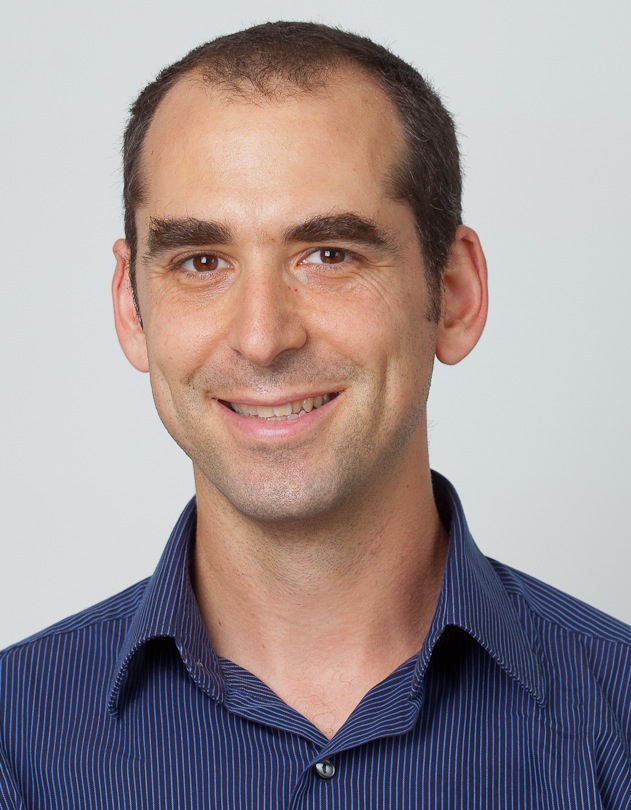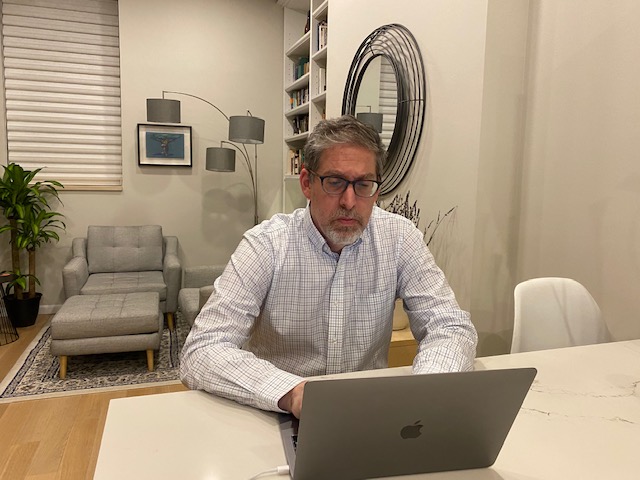About
The COVID-2020 workshop focuses on all aspects of modeling, simulating, mining, and understanding the spatial processes and patterns of the spread of COVID-19 and other infectious diseases. This cross-disciplinary workshop is a forum to bring together researchers in the SIGSPATIAL community as well as researchers in epidemiology. Also, this workshop is of interest to everyone who works with infectious disease data and models (not necessarily COVID19). In addition to paper presentations, this workshop will feature invited speakers keynotes from experts across the SIGSPATIAL community and epidemiology.
Call For Papers (PDF)
The workshop seeks high-quality full (8-10 pages) and short (4 pages) papers that have not been published in other academic outlets and are not concurrently under peer review. Once accepted, at least one author is required to register for the workshop and the ACM SIGSPATIAL conference, as well as attend the workshop to present the accepted work which will then appear in the ACM Digital Library.
Example topics include, but not limited to:
| * Contact Tracing | * COVID-19 Tracking and Data Collection |
| * COVID-19 Data Cleaning and Wrangling | * Disease Spread Simulation |
| * COVID-19 Data Mining | * Managing Uncertainty in COVID-19 Data |
| * COVID-19 Data Query Processing | * Mapping and Visual Analytics of COVID-19 |
| * COVID-19 Effects on Human Mobility | * Prescriptive Analytics for COVID-19 |
| * COVID-19 Hotspot Detection | * Socioeconomic Impact of COVID-19 |
| * COVID-19 Simulation and Modeling | * Spatial Analysis of COVID-19 |
| * COVID-19 and Social Media | * Spatially Explicit COVID-19 Prediction Models |
Submission Information
Submission deadline
September 30, 2020
Author notification
October 18, 2020 (updated!)
Camera-ready Due
October 20, 2020
Workshop date
November 03, 2020
Submission site
https://easychair.org/conferences/?conf=covid2020
Organization Committee
General Chairs
Andreas Züfle (George Mason University)
Program Chairs
Taylor Anderson (George Mason University)
Jia Yu (Washington State University)
Program Committee
Michael Desjardins (Johns Hopkins Bloomberg School of Public Health)
Suzana Dragicevic (Simon Fraser University)
Zipei Fan (The University of Tokyo)
Song Gao (University of Wisconsin-Madison)
Yulia Gel (University of Texas at Dallas, USA and University of Waterloo, Canada)
Alexander Hohl (The University of Utah)
Muhammad Imran (Qatar Computing Research Institute)
Hamdi Kavak (George Mason University)
Joon-Seok Kim (George Mason University)
Tao Liu (Michigan Technological University)
Ignacio Segovia- Dominguez (University of Texas at Dallas)
Xuan Song (The University of Tokyo)
Yiqun Xie (University of Maryland)
Dong Xie (Pennsylvania State University)
Di Yang (University of Wyoming)
Location
Online. Seattle, Washington
Speakers
-

Nicholas Reich
Nicholas G Reich is an Associate Professor of Biostatistics at the University of Massachusetts Amherst. He received a PhD in Biostatistics from Johns Hopkins School of Public Health. His research team at UMass has developed statistical methods and open-source tools for creating probabilistic, ensemble forecasts of infectious disease outbreaks in real-time. His team leads two international infectious disease forecasting consortia, including the FluSight Network and the COVID-19 Forecast Hub. Dr. Reich is the director of an Influenza Forecasting Center of Excellence, funded by the U.S. Centers for Disease Control and Prevention (CDC). Read more about his research lab at https://reichlab.io
Talk: A critical evaluation of COVID-19 pandemic forecasts
-

Jeffrey Shaman
Jeffrey Shaman is a Professor in the Department of Environmental Health Sciences and Director of the Climate and Health Program at the Columbia University Mailman School of Public Health. He studies the survival, transmission and ecology of infectious agents, including the effects of meteorological and hydrological conditions on these processes. Work-to-date has primarily focused on mosquito-borne and respiratory pathogens. He uses mathematical and statistical models to describe, understand, and forecast the transmission dynamics of these disease systems, and to investigate the broader effects of climate and weather on human health.
Talk: Transmission Dynamics of SARS-CoV-2: Modeling, Inference and Projection
Program (Timezone: PST)
Meeting:  Chat:
Chat: 
Tuesday, November 3, 2020
08:00-08:10 : Opening Remarks : Foreword
08:10-9:00 : Keynote 1
A critical evaluation of COVID-19 pandemic forecasts
Nicholas Reich (University of Massachusetts Amherst)
09:00-10:00 : Research Session 1
09:00-09:15 : Contact Tracing: Beyond the Apps
Mohamed Mokbel, Sofiane Abbar and Rade Stanojevic (Qatar Computing Research Institute,
Hamad Bin Khalifa University)
09:15-09:30 : Infection Risk Score: Identifying the risk of infection propagation based on human contact
Rachit Agarwal (IIT Kanpur) and Abhik Banerjee (Swinburne University)
09:30-09:45 : GeoCoV19: A Dataset of Hundreds of Millions of Multilingual COVID-19 Tweets with Location Information
Umair Qazi, Muhammad Imran, Ferda Ofli (Qatar Computing Research Institute,
Hamad Bin Khalifa University)
09:45-10:00 : Rapid detection of COVID-19 clusters in the United States using a prospective space-time scan statistic: An update
Alexander Hohl (University of Utah), Eric Delmelle (University of North Carolina at Charlotte) and Michael Desjardins ( Johns Hopkins
Bloomberg School of Public Health)
10:00-10:50 : Keynote 2
Transmission Dynamics of SARS-CoV-2: Modeling, Inference and Projection
Jeffrey Shaman (Columbia University)
10:50-11:00 : Break
11:00-12:00 : Research Session 2
11:00-11:15 : Geospatial forecasting of COVID-19 spread and risk of reaching hospital capacity
Georgiy Bobashev (RTI International), Ignacio Segovia-Dominguez (University of Texas at Dallas), Yulia R. Gel (University of Texas at Dallas), James Rineer (RTI International), Sarah Rhea (RTI International), Hui Sui (University of North Carolina at Chapel Hill)
11:15-11:30 : On Improving Toll Accuracy for COVID-like Epidemics in Underserved Communities Using User-generated Data
Hamada A. Aboubakr (University of Minnesota) and Amr Magdy (University of California, Riverside)
11:30-11:45 : Corona Games: Masks, Social Distancing and Mechanism Design
Balázs Pejó (CrySyS Lab) and Gergely Biczók (Budapest University of Technology and Economics)
11:45-12:00 : COVID-19 Risk Estimation using a Time-varying SIR-model
Mehrdad Kiamari (University of Southern California), Gowri Ramachandran (University of Southern California), Quynh Nguyen (University of Southern California), Eva Pereira (Office of the Mayor, City of Los Angeles ), Jeanne Holm (Office of the Mayor, City of Los Angeles ) and Bhaskar Krishnamachari (University of Southern California)
12:30-13:15 : Research Session 3
12:30-12:45 : REACT: Real-Time Contact Tracing and Risk Monitoring using Privacy-Enhanced Mobile Tracking
Li Xiong (Emory University), Cyrus Shahabi (University of Southern California), Yanan Da (Emory University), Ritesh Ahuja (University of Southern California), Vicki Hertzberg (Emory University), Lance Waller (Emory University), Xiaoqian Jiang (University of Texas Health Science Center) and Amy Franklin (University of Texas Health Science Center)
12:45-13:00 : Sensitivity Analysis for COVID-19 Epidemiological Models within a Geographic Framework
Zhongying Wang and Orhun Aydin (University of Southern California)
13:00-13:15 : Analysis of the Impact of COVID-19 on Education Based on Geotagged Twitter
Zhu Wang and Isabel Cruz (University of Illinois at Chicago)
13:15-14:05 : Research Session 4
13:15-13:30 : Using Animation to Visualize Spatio-Temporal Varying COVID-19 Data
Hanan Samet, Yunheng Han, John Kastner and Hong Wei (University of Maryland)
13:30-13:45 : Human Mobility based Individual-level Epidemic Simulation Platform
Zipei Fan (Southern University of Science and Technology, Shenzhen), Xuan Song (Southern University of Science and Technology, Shenzhen), Yinghao Liu (University of Tokyo), Zhiwen Zhang (University of Tokyo), Chuang Yang (University of Tokyo), Quanjun Chen (Southern University of Science and Technology, Shenzhen), Renhe Jiang (Southern University of Science and Technology, Shenzhen), Ryosuke Shibasaki (Southern University of Science and Technology, Shenzhen)
13:45-14:00 : COVID-19 Joint Pandemic Modeling and Analysis Platform
Gautam Thakur, Kevin Sparks, Anne Berres, Varisara Tansakul, Erik Schmidt, Supriya Chinthavali, Matthew Whitehead, Haowen Xu, Junchuan Fan, Dustin Spears and Elton Cranfill (Oak Ridge National Laboratory)
14:00-14:15 : Mapping county-level mobility pattern changes in the United States in response to COVID-19
Song Gao, Jinmeng Rao, Yuhao Kang, Yunlei Liang, Jake Kruse (University of Wisconsin-Madison)
14:15-14:30 : COVID-19 Ensemble Models Using Representative Clustering
Joon-Seok Kim, Hamdi Kavak, Andreas Züfle, Taylor Anderson (George Mason University)
14:30-14:35 : Closing Remarks